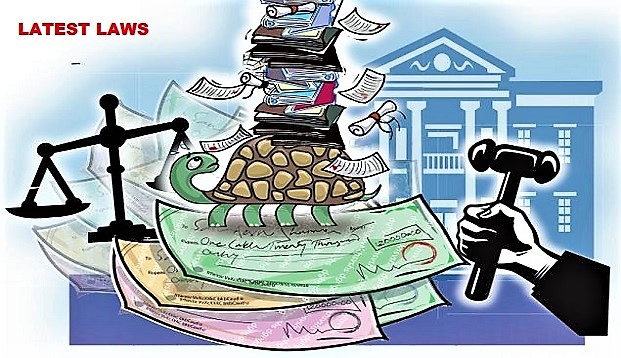
Homepage
General
sarthak_modi in General
Guidelines on compensation for motor accident claims

Subscribe for Updates
In this article, Sarthak Modi discusses SC guidelines on compensation for motor accident claims.
Motor accident claims
A claim under a motor insurance policy could be because of either of the two injuries:
Damage to Other, which includes injury or damage to property related to someone else. This person is called the “third party”.
Damage to Self, which includes damage to a person’s own insured vehicle. This is called “own damage claim” and one is entitled to it if they are holding a package or a comprehensive policy.
Third-party claim
In a third party claim where a person’s vehicle is involved, it is necessary to report the accident immediately to the police authorities as well as the insurance company. However, for a third party who has suffered loss because of someone else’s vehicle, the injured party must obtain the insurance details of the vehicle and make an intimation to the insurer of that vehicle.
Own Damage Claim
In the event of an own damage claim, which is where the person’s own vehicle is damaged due to an accident, the person must immediately inform insurance company and police, wherever required, to enable them to depute a surveyor to assess the loss.
Who can file a claim?
In case of damage to property, the application for compensation must be made by the owner of the damaged property. It is implied that in case of death of the owner of the property, the legal representatives of the deceased owner can competently claim compensation. An application for compensation arising out of an accident under Section 166 of Motor Vehicles Act, 1988 may be made:-
People, who have been injured in accidents on the road, can themselves file for compensation or route the claims through their advocates.
But accident victims, under the age of 18, cannot file for compensation themselves. They have to go through their lawyers.
Legal heirs of people who have died in accidents can also claim compensation. Alternatively, they can route their claims through their advocates.
Jurisdiction of Claims Tribunal
A victim of an accident arising out of use of motor vehicles may file their claim application to the Motor Accident Claims Tribunal (M.A.C.T.) within local limits of whose jurisdiction the claimant resides or carries on business.
What all documents should accompany the petition?
Copy of the FIR registered in connection with the said accident.
Copy of the MLC/Post Mortem Report/Death Report as the case may be.
The documents of the identity of the claimants and of the deceased in a death case.
Original bills of expenses incurred on the treatment along with treatment record.
Documents of the educational qualifications of the deceased, if any.
Disability Certificate, if already obtained, in an injury case.
The proof of income of the deceased/injured.
Documents about the age of the victim.
The cover note of the third party insurance policy, if any.
An affidavit detailing the relationship of the claimants with the deceased.
Time as an essence while reporting for motor accident claims
Although the established limitation period for the Motor Crash Claim Tribunal to claim a claim for compensation (under the provisions of the Motor Vehicle Act, 1988) is not mentioned, an appellant must approach a court for such a claim within a reasonable time.
No-Fault Liability
Chapter X of the Act deals with such cases. It imposes no-fault liability on the owner of the motor vehicle. Although such liability arises only in the event of accidents leading to the death or permanent incapacity of the victim.
Article 140 of the Act stipulates the principle of no liability. According to this principle, liability for compensation is imposed on the owner of the motor vehicle, even if there is no fault in connection with the accident investigated by the court.
Under section 140 (2) The compensation to be paid in the event of no liability is INR 50000 for Death and INR 25000 in case of permanent disablement.
Motor accident claims – Hit and Run cases
The term Hit and Run motor accident has been defined in Section 161(1)(b). Hit and run motor accident are those accidents arising out of the use of a motor vehicle or motor vehicles the identity of whom cannot be ascertained in spite of reasonable efforts for the purpose.
Thus one of the essential of hit and run motor accident is that the vehicle which caused the accident is untraceable. Even though positive efforts have been put in to ascertain the identity of the vehicle.
Guidelines By Supreme Court on the fixation of future prospects in cases of motor accidents for victims.
A five-Judge Bench of the Supreme Court while hearing the case ‘National Insurance Company Limited v Pranay Sethi’ agrees with the view on the standardization of the addition to revenue against future prospects in accordance with Article 168 of the Motor Vehicle Act 1988. It also noted that the concept of “fair compensation” should be determined on grounds of fairness, reasonableness and on acceptable legal standards, since such a provision “can never be in arithmetical exactitude”. The key takeaways from the guidelines are :
While the income is determined to follow the doctrine of actual income at the time of death and not to add any amount of future prospects to income for the determination of multiplicand, it would be unfair. The determination of income in the calculation of remuneration must include future prospects so that the method will come into the line of just compensation as mentioned in terms of Section 168 of the Act.
An addition of 50% of actual salary to the deceased’s income relative to future prospects, where the deceased had a permanent job and was under 40 years old. The addition should be 30% if the age of the deceased was between 40 and 50 years. If the deceased was between the age of 50 and 60, the addition must be 15%. Actual salary must be read as actual salary less tax.
If the deceased was self-employed or on a fixed salary, an addition of 40% of the income should be the warrant where the deceased was less than 40 years old. An addition of 25% where the deceased between the ages of 40 to 50 years and 10% where the deceased was between the ages of 50 and 60 should be regarded as the required calculation method. The established income means the income less the tax component.
Deceased with a permanent job (salaried)Addition MadeWhere deceased was self-employed or on a fixed salaryAddition MadeBelow 40 years50%Below 40 years40%40-50 years30%40-50 years25%50-60 years15%50-60 years10%
For the determination of the multiplicand and the deduction for personal and living expenses, the tribunals and the courts should refer to paragraphs 30 to 32 of Sarla Verma. The multiplication is normally based on the net annual value of the dependency on the date of death of the deceased. As soon as the net annual loss (multiplicand) is assessed, taking into account the age of the deceased, such amount is multiplied by a “multiplier” to compensate for the loss of dependence.
Multiplier Table in Claim Cases under Section 166
Age of the VictimMultiplier to be adopted for accidentsUp to 15 years1515 to 20 years1621 to 251726 to 301831 to 351736 to 401641 to 451546 to 501351 to 551156 to 60861 to 655Above 655
In some cases, the Supreme Court said that the determination of multiplier is determined by the age of the deceased, the age of plaintiff’s, marital status, education and employment of the plaintiffs and loss of financial benefits.
The income of the deceased per year must be determined. From the income mentioned, a deduction must be made in respect of the amount that the deceased would have spent on his / her personal and living expenses. The balance which is to be considered to be the contribution to the dependant family constitutes the multiplicand.
A reasonable amount on conventional heads, i.e., Rs. 15,000/- for loss of estate, Rs. 40,000/- for loss of consortium and Rs. 15,000/- for funeral expenses should be awarded to the victim. The aforesaid amounts are to be enhanced at the rate of 10% in every three years.
Few things to keep in mind
According to Section 163-B, where a person is entitled to claim compensation under section 140 and Article 163-A, he must lodge the claim under one of the aforesaid sections and not under both.
When a road accident compensation is granted, the person paying the amount must pay it within 30 days of the announcement of orders.
Even simple interest is applied to the amount from the date of making claims. When the person paying the road accident compensation is willing or otherwise not paying the amount, the tribunal may order the collector to recover the money as it happens in cases of unpaid land revenue.
How much compensation one can expect?
If a driver is involved in an accident in India and if it caused victim’s death then, a minimum of INR 50,000/- and if permanent disablement is caused then, a minimum of INR 25,000/- must be paid as compensation.
A claims tribunal can pay even more after considering the case. The owner of the motor vehicle or the authorized insurer shall be liable to pay in the case of death or permanent disablement due to accident arising out of the use of a motor vehicle under section 163A.
References
https://blog.ipleaders.in/road-accident-compensation-claim/
Subscribe for Updates
Next Read: What is the punishment for possession of marijuana? »
 sarthak_modi :
sarthak_modi :






Related Post

Protection of mankind through non- derogable rights

Is Entering into Prenuptial or Postnuptial Agreement Beneficial for Non Resident Indians (NRIs)?
Appearance and Non-appearance of Parties in the Civil Suit
All Rights Reserved | View Non-AMP Version
Powered by AMPforWP

 Download Now
Download Now







 Download Now
Download Now